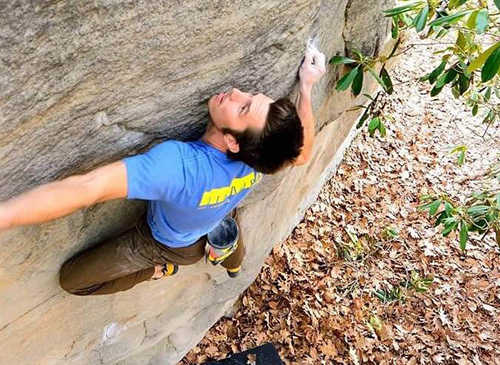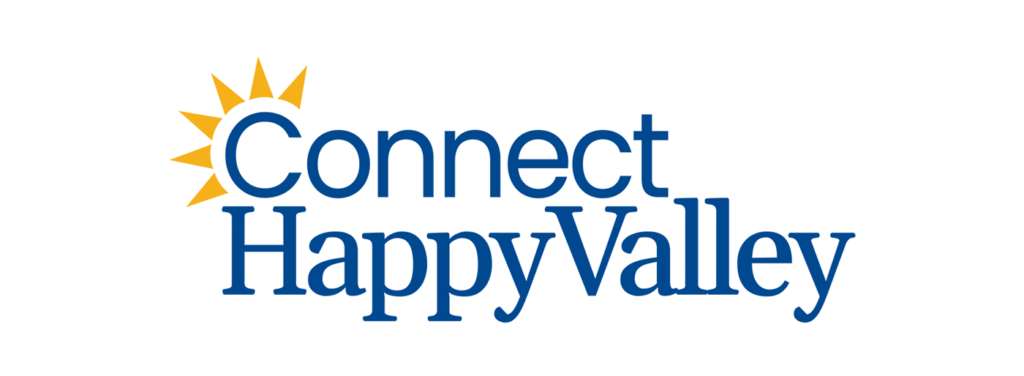by Holly Riddle

If you’ve been following our recent coverage of the Invent Penn State Summer Founders Program — which invites six startups to spend the summer in Happy Valley, working on their startups with the help of Invent Penn State and Happy Valley LaunchBox powered by PNC Bank resources — then you’ve already met some pretty amazing startup founders and been introduced to their groundbreaking ideas. From Atlas Biotech, which is changing the way clinical trials are conducted, getting better treatments to patients faster, to Saveware, which saves small businesses money via optimized sales tax refunds, these startups are serious about changing business, industry and research.
However, many of these startups focus on solutions and products that impact niche audiences. The average Centre County resident might not immediately see their results. That’s not the case for Bool LLC, though.
Founded by a Happy Valley native, after seeing how a single solution could serve both State College locals and Penn State students alike — as well as, similarly, locals and students in university towns all over the country — Bool is an app that provides live wait time predictions for bars, clubs and restaurants. Its value, though, goes far beyond just informing you of how long you might spend waiting to snag a table at your favorite no-reservations eatery.
Here’s what founder and recent Penn State grad Nicholas Cole had to say about the inspiration behind the app and how the app has amassed more than 7,000 active users since its recent launch.
What led you to creating Bool? Why is this a needed solution?
Me and my team have been working on [this] for the last couple years. It took us a long time to settle on what we really wanted it to be. This feature of being able to see bar wait times was really important to us. A lot of students end up [paying] expensive premiums to skip the line [at bars], because they don’t know how long the line is, and they just want to be able to make better plans to go out.
Additionally, I’m a local student. I was born and raised here in State College, so I have a unique perspective on the bar line issue, which, in a lot of ways, hurts the community. You have a lot of rowdy, drunk students out on the streets causing trouble. It’s something that causes a burden for the State College police and the community as a whole.
Another one of my goals is to flatten the curve and give smaller bars with less of a line, more of an opportunity to get customers, and also encourage students to spread around to different places in town.
So how does it work?
We spent last semester doing research and collecting data on the bar crowds. We made these devices that could scan for Bluetooth signals emitted by people’s phones, Apple watches, headphones and things like that. We would put these [devices] out during crowded nights, and this could give us a sense of how many people were there in real time. Then, based off this data, we built a model that can make rough predictions for all the bars in State College. This approach is a steppingstone to get people on our mobile app. Once we have enough people on the mobile app, we can automate the process completely by doing location tracking and user tracking to automatically evaluate the crowd at the bar — kind of like what Waze does with traffic.
Why did you decide you wanted to apply to participate in the Summer Founders Program?
I initially [participated in] the MVP DevLab at the LaunchBox, last semester. I met all the mentors there. After that, I applied to the FastTrack Accelerator program, which took place this semester. I knew immediately I wanted to apply for Summer Founders. These programs are really invaluable, for the amount of mentorship and insight you get on how to run a business, how to appeal to customers… I really had no idea what I was doing, going in, at all. If it weren’t for these programs, I don’t think we’d be where we are now. It was a no-brainer to apply to Summer Founders.
What are you hoping to get out of the program this summer?
We’re focusing on building our technology, to improve the accuracy of our predictions, and preparing to expand to other college towns. We’re also working on our business model, to find the most sustainable way to fund this.
How much do you feel the entrepreneurial landscape in Happy Valley has contributed to your success thus far?
I could not have replicated this success without the LaunchBox. Absolutely not. I had absolutely no idea what I was doing. The tech stuff was very familiar to me. Building the technology was no problem, but marketing, customer discovery, targeting, figuring out how to actually communicate to people — all those skills came from the LaunchBox.
What’s been the most rewarding part of working on Bool?
Watching the user base grow, getting feedback from people and just seeing the engagement has been insanely rewarding. I remember times my team and I would do these big marketing pushes on the weekend. We’d work all weekend and, at the end, we’d all be coming home and we’d have hit 10,000 views and just be cheering, seeing on our servers all the traffic coming into the website. All the marketing we’ve done has been literally just walking up to people and telling them about [the app]. Seeing the feedback is awesome, seeing the excitement that people have, and the support from random people in the town, just because we did something that made their lives easier and a little bit better — it’s been really, really fun.






